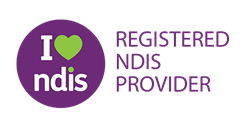NDIS Positive Behaviour Support Services
The CPBS team, consisting of over 100 Behaviour Support Practitioners, provides Positive Behaviour Support services across metropolitan and regional areas nationwide.
1 - Google Ads Form
"*" indicates required fields
Improving Quality of Life for Every Individual
At CPBS, we focus on improving quality of life by using person-centred, proactive strategies to manage behaviours of concern and build important life skills.
We support a diverse range of individuals, including neurodivergent people such as those with Autism, individuals with intellectual and developmental disabilities like Down Syndrome, and those experiencing mental health challenges like anxiety and depression.
We also work with children with ADHD and learning disabilities, individuals recovering from brain injuries, older adults facing cognitive decline, and people living in residential or community-based settings. Our goal is to provide compassionate, data-driven support that empowers individuals to thrive in their daily lives.
We Can Support You Throughout Your Journey!
Intake Team
Clinical Manager
PBS Practitioner
We focus on establishing meaningful connections from the start.
Frequently Asked Questions
How Can Positive Behaviour Support Help You?
At CPBS, our Positive Behaviour Support services are available across Australia and are designed to help children, teenagers, and adults with disabilities achieve meaningful and lasting change. Our tailored approach focuses on understanding the triggers of behaviours of concern and providing practical strategies that you and your support network can use to reduce these behaviours. We aim to eliminate or reduce restrictive practices, improving quality of life and community participation. We also work closely with family members and support coordinators to build skills and ensure everyone works together towards a shared goal. Contact us today to learn how we can support you and your loved ones in achieving lasting, positive outcomes.
Where Can You Access Positive Behaviour Support Services Across Australia?
School/Work:
We understand how important school and work are to a person’s well-being. Our Positive Behaviour Support services are available nationwide to address challenges in both educational and professional environments. Whether it’s managing academic pressures, improving workplace performance, or enhancing relationships, our support focuses on practical strategies that make a real difference in real time.
Home:
Receiving support at home creates a comfortable and familiar setting where individuals feel safe and at ease. This often leads to more open communication and effective outcomes. Our practitioners can observe everyday routines and interactions to develop personalised strategies that suit each individual’s needs and lifestyle.
Community:
Our Positive Behaviour Support services also extend into the community, helping participants build confidence, independence, and social connections. We focus on improving communication, daily living skills, and encouraging active participation in community life.
We offer support across these key areas to ensure every individual receives the right tools and guidance to thrive in all aspects of life.
What is a NDIS Positive Behaviour Support Plan?
The path to enjoying more everyday activities begins with creating a personalised Positive Behaviour Support (PBS) plan. We’ll work closely with you and your trusted support team to ensure we’re aligned and focused on building capacity together.
A PBS plan will be developed within 30 days of your assessment if unauthorised restrictive practices are used. This plan will be shared, reviewed, and updated regularly with your support team. If a restrictive practice is in place, the plan will be sent to the relevant state or territory’s Office of the Senior Practitioner for approval, and to the NDIS Commission for monitoring.
We’ll ensure that everyone involved understands the plan and how to implement it in daily life.
What are Restrictive Practices?
Restrictive practices are interventions that limit a person’s rights or freedom of movement. These practices are typically used in response to behaviours of concern and should always be seen as a last resort. Unfortunately, they are sometimes used to manage the behaviour of people with disabilities and can cause significant distress. Our skilled team of behaviour support practitioners is dedicated to reducing and eventually eliminating the use of restrictive practices, helping to restore dignity, independence, and improve overall quality of life.
Under the NDIS, certain restrictive practices are regulated and must be authorised by the State or Territory where the individual resides. They must also be monitored and reported to the NDIS Commission for Quality and Safeguards. These practices include chemical, physical, environmental, and mechanical restraints, as well as seclusion.
How do I get started with Positive Behaviour Support CPBS services?
To begin with Positive Behaviour Support, your NDIS plan must include Improved Relationships (IR) funding. If you have this funding, simply complete our online form to provide some basic details about yourself, where you live, and your goals. This will help us match you with the right team.
A practitioner will then conduct an initial assessment at your home to understand your goals and get to know you, your family, and the rest of your support team.
Once all the necessary information is gathered, the disability practitioner will assemble your dedicated therapy team.
Your follow-up appointments or focused assessments will work towards developing specific strategies to address behaviours of concern. These may include occupational, speech, and physiotherapies, assistive technologies, and/or social interventions. Depending on your goals, one or more of these team members may attend the assessment.
This holistic approach ensures you maximise the value of your NDIS funding.

CPBS stands as a trusted leader in the Positive Behaviour Support sector, celebrated for our innovation and impact. In 2024, we were honoured with the prestigious title of Most Outstanding Positive Behaviour Support Provider in the World.

NDIS Positive Behaviour Support Funding
NDIS Positive Behaviour Support Funding - The National Disability Insurance Scheme (NDIS) supports individuals with permanent and significant disabilities, providing greater choice and control over funded services. Funding is personalised to meet each person's unique needs.


